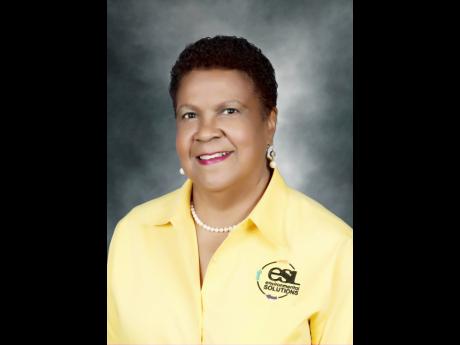Earth Today | Female inclusion key to climate readiness – Canadian diplomat
AS JAMAICA and the Caribbean persist in efforts to become climate ready, collaboration and female inclusion and leadership are being advanced as critical to their success.
"Hurricanes Irma and Maria have highlighted the vulnera-bility of Caribbean states, and although Jamaica was spared, we nevertheless saw first-hand the direct impact to sectors, such as health, agriculture, water and overall infrastructure. This has now raised the question of the need to have a more climate-smart approach that will sustainably increase productivity and reorient agricultural systems to support development and food security," noted Laurie Peters, the Canadian high commissioner to Jamaica.
"In light of this, a more collaborative approach is needed to build greater resilience at the national as well as regional level. Canada believes in an inclusive approach, one that promotes environment and climate action by advancing women's leadership and including women and girls in the planning and decision-making process. This inclusion will support initiatives that will both mitigate and adapt to climate change, therefore creating economic opportunities for women," she added.
Peters was speaking earlier this year at a training session of beneficiaries of the Canada Fund for Local Initiatives (CFLI), the SunFlower Foundation.
Gender analysis
Jamaica, meanwhile, has been moving to realise gender equality and the empowerment of women in climate change policy planning and action, beginning with the commissioning of a review and gender analysis of its existing climate change policy framework.
It is an action that has won the endorsement of some key female members of industry and academia.
"Consideration of gender is as much about attention to differentiated roles and needs of men and women as it is about equality of opportunity, rights, and privileges. We must, therefore, consider how our men, women, and children need to respond to the impact of a changing climate on health, agriculture, livelihoods, sustainable quality water supply, and disasters, to name a few areas," Eleanor Jones, chairman and chief executive officer for Environmental Solutions Limited, told The Gleaner in February.
"Climate change is happening now; it is not a future event. We need to think of the role of our women as they head households and care for children. Our men are also heads of households and breadwinners. How should our sensitisation programmes be shaped? Where do our women work? Our men? What should they be cognisant of?" she added.
Dr Leith Dunn, head of the Institute for Gender and Sustainable Development Studies at the University of the West Indies, Mona, said mainstreaming gender in climate change is "vitally important" and begins with the research.
"Collecting and analysing data disaggregated by sex, age, education, social and economic background, disabilities, health status, residence in rural versus urban locations, and other factors can help disaster planners to develop a profile of who is most vulnerable, how, and where. This information can be used to develop targeted messages for vulnerable persons and show them how they can better prepare for the effects of climate change. This can save lives and enable people to secure their livelihoods," she said.



